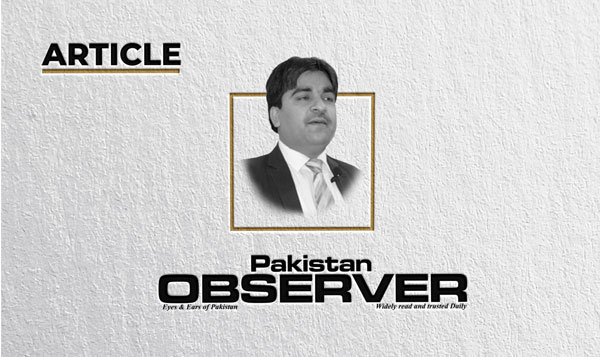Our children, our responsibility
NAMING a year on a historic occurrence is a custom practiced by many cultures across the world. If we’re to apply this to 2023 in Pakistan, then the year can easily be dubbed the“Year of Elections”. Every single political party in the country has held power-shows, made public promises and shared its ‘vision’ for how it wants to lead the country towards change. Every party has claimed to have the backing of millions of men and women, young and old. The truth behind the claimed figures is anyone’s guess but the on-ground situation shows that Pakistani political parties have ignored their biggest voters i.e. population under the age of 18.This oversight can’t be called an error for children don’t have the right to vote in Pakistan or anywhere for that matter.
However, Pakistan, at present, has the highest percentage of children ever recorded in its history. A country where under-18 population is almost 46 percent of the total, one ought to think that the core focus of the politician will be to win the hearts of these children to get future votes and to appease their parents to get current votes. However, no matter who has remained in charge, Pakistan has remained behind in almost all child rights indicators whether health, education, child marriages, protection from violence, child labour etc.
All children are ‘entitled’ to their rights to survival, protection and development. A scheme or sanitation service cannot pay dividends if it is too expensive, unsafe, remotely located, non-gender-segregated or deemed culturally inappropriate. If any doubt is cast in the minds of recipients, the particular service is bound to fail. Significance of non-discrimination is often understated in public and private child rights programs. The terms ‘equality’ and ‘inclusion’ sound a cliché but unfortunately Pakistani children remain oblivious to them. Our children suffer from intentional and unintentional discriminatory practices in education, health, labour and justice sectors. If Pakistan is to prosper, then those at the helm of power must work to ensure that there is no discrimination on the basis of religion, gender, locality, financial status, caste and physical or mental abilities. Child rights are for every child period.
Experts have presented ‘Charter of Economy’ and ‘Charter of Democracy’ as solutions to bring Pakistan out of the political and financially turbulent times. This requires all stakeholders to keep their differences aside and vow to ensure that economy and democracy will not suffer irrespective of who holds the wheel. Along these lines, Pakistan needs a ‘Charter of Children’ which simply means no politics over children. Regardless of which party controls the center and the provinces, child-related matters will not be derailed. Once this understanding is developed there’s a need to turn the superficial promises into something concrete.
When it comes to children, the political parties must promise what they can deliver and they must deliver what has been promised. Child Rights can’t be delivered in parts. Legislation is just a piece of paper unless the rules of business are made in time. The rules are meaningless unless an adequate budget is allocated for implementation and the allocation is of little worth unless it is delivered in full and on time. This chain seems far-fetched but it can be easily applied on any child right area and the loopholes will become evident. Moving towards the future, everything must be in line with the 2030 Agenda of Sustainable Development Goals and all the performance must be tracked accordingly.
The dominant practice of excluding children from policy decisions related to them must come to a halt now. Political parties must show that they’ve in store for children and they must tell this to children directly. Whether in the form of a dedicated Child Ministry or by improving on the example of presence of child members in the National Child Rights Commission, children must be involved in the policy-making process.
Political parties must realize that enabling children’s access to rights is not a favour to them. Child Rights are not “provided” they are “ensured”. It is the duty of adults to ensure this and therefore they are accountable towards children. Our children are our responsibility and hopefully for the first time, Pakistanis will score and elect their representatives on the basis of performance in child rights.










